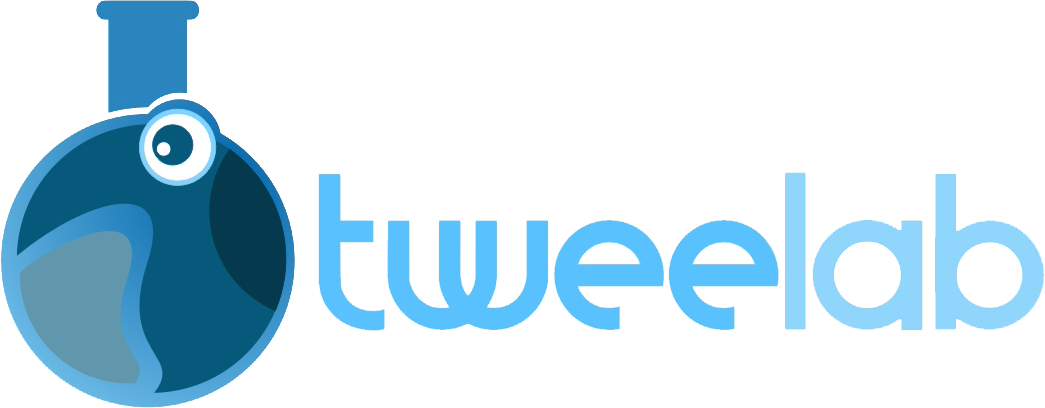Hey there, fellow bloggers! Are you tired of putting in hours and hours of work into your blog without seeing any financial return? Well, it’s time to explore sponsored content opportunities.
Sponsored content is a great way for bloggers to monetize their platform while still providing value to their audience. Sponsored content involves partnering with brands or companies who pay you to create content that promotes their product or service. This can come in the form of sponsored posts, social media campaigns, or even brand ambassadorships.
The key to successful sponsored content is ensuring that it aligns with your own values and interests as a blogger so that your audience trusts the authenticity of the promotion. In this article, we’ll dive deeper into how to find relevant sponsorships for your niche and tips on creating engaging sponsored content that provides value both for the brand and your readership.
So let’s get started on turning your passion project into a profitable endeavor!
Understanding Sponsored Content

Are you a blogger looking for ways to monetize your blog? Sponsored content may be the answer.
But before diving into this lucrative opportunity, it’s important to understand what sponsored content is and the legal considerations that come with it.
Sponsored content refers to any type of content created or endorsed by a brand in exchange for payment. This can include blog posts, social media updates, videos, and more. The goal is to promote the brand while providing value to your readers.
However, as with any form of advertising, there are disclosure requirements that must be met. The Federal Trade Commission (FTC) requires bloggers to disclose when they have been paid or received free products in exchange for writing about a brand. Failure to do so could result in fines or legal action. It’s crucial to ensure that all sponsored content is clearly marked as such and that you follow these guidelines closely.
Finding Relevant Sponsorships For Your Niche

Collaborative outreach is the key to finding relevant sponsorships for your niche. This means reaching out to brands and companies that align with your blog’s values and content. It’s important to establish a relationship with these potential sponsors before pitching any ideas.
To start identifying opportunities, make a list of brands or products you personally use or believe in. Research their marketing strategies and see if they have worked with bloggers in the past. Look for ways you can add value to their campaigns by incorporating your unique voice and expertise.
Another way to find relevant sponsorships is through online platforms such as influencer marketplaces or PR networks. These platforms connect bloggers with brands seeking collaborations, making it easier to pitch your ideas and negotiate terms.
Keep in mind that while these platforms can be helpful, building personal relationships with sponsors often leads to more successful partnerships in the long run.
Creating Engaging Sponsored Content

As a blogger, finding relevant sponsorships for your niche is just the first step. The real challenge lies in creating engaging sponsored content that will resonate with both your audience and the brand you are working with.
Collaborative brainstorming sessions with the brand’s marketing team can be incredibly helpful when it comes to developing ideas for sponsored content. By exchanging thoughts and insights, you can create something truly unique that aligns perfectly with your blog’s voice while still promoting the brand’s message.
One visual storytelling technique that has proven to be effective in sponsored content creation is using high-quality images and videos. Adding visually appealing elements to your post not only captures attention but also helps convey information more effectively. Plus, if done correctly, these visuals can help strengthen the connection between your readers and the product or service being promoted.
Maintaining Authenticity And Transparency

Balancing authenticity while monetizing your blog can be tricky. As a blogger, it’s important to maintain the trust of your audience by being transparent about sponsored content opportunities. Disclosing any partnerships or compensation received for promoting products or services is crucial in maintaining that trust and ensuring transparency.
The Federal Trade Commission (FTC) has established disclosure guidelines for bloggers and influencers to follow when promoting sponsored content. These guidelines require bloggers to clearly disclose any material connection between themselves and the brands/products they are promoting.
This includes disclosing if you have been compensated for your review or endorsement, as well as any affiliate links used in your post. It may seem daunting at first, but following these disclosure guidelines will ultimately benefit both you and your audience.
By being transparent about sponsored content, you’ll establish yourself as a trustworthy source of information within your niche. Maintaining authenticity with your readers will also lead to greater engagement and loyalty over time. Remember, honesty is always the best policy when it comes to monetizing your blog!
Negotiating Rates And Contracts

Negotiating Rates and Contracts is the next crucial step in monetizing your blog through sponsored content opportunities. It’s important to understand that not all brands will offer the same rates, so it’s essential to negotiate effectively.
To begin with, make sure you have a clear understanding of your value as a blogger by taking into account factors like your niche, traffic, audience engagement levels, and social media following.
When negotiating payment terms, remember that there are different types of contracts available depending on what works best for both parties involved. You can choose between fixed fee agreements or performance-based contracts where you earn money based on results such as clicks, conversions, or sales.
However, before signing any contract, ensure that legal considerations are taken into account since this protects both yourself and the brand from potential issues down the line.
Here are some tips to help you negotiate rates and contracts successfully:
- Be professional but confident when discussing payment terms.
- Research beforehand about industry-standard rates within your niche.
- Highlight specific metrics that demonstrate your worth as a blogger.
- Don’t be afraid to ask questions if anything is unclear in the contract.
Remember that good negotiation skills involve being flexible while still maintaining boundaries that align with your values as a blogger. By doing so, you’ll be able to establish long-lasting relationships with brands while also earning income through sponsored content opportunities without compromising your credibility online.
Measuring Success And ROI

Analyzing metrics is an essential part of measuring the success and ROI of sponsored content. As a blogger, it’s important to understand what metrics matter most for your particular niche and audience.
For example, if you’re in the fashion industry, engagement rates on Instagram may be more valuable than website traffic. By evaluating impact through relevant metrics, you can determine which sponsored content performs best and adjust your strategy accordingly.
One key metric to measure when analyzing sponsored content is click-through rate (CTR). This measures how many readers clicked on a link within your post or ad and followed through to the sponsor’s website. CTR is a great indicator of whether your sponsored content is resonating with your audience and driving them to take action.
Additionally, tracking conversion rates – how many readers actually make a purchase after clicking through – can help you see the direct revenue generated from each piece of sponsored content.
Evaluating impact goes beyond just looking at raw numbers. It also involves considering how effectively the sponsored content aligns with your brand message and values, as well as how positively it was received by readers. Did it generate meaningful conversations in the comments? Were there any negative reactions or pushback?
Taking these qualitative factors into account can give you a more complete picture of how successful each piece of sponsored content truly was.
Building Long-Term Relationships With Brands

As a blogger looking to monetize your website, building long-term relationships with brands is crucial. It’s like cultivating a garden – it takes time and effort, but the rewards are bountiful when done right.
To build trust with brands, you must first demonstrate value. Showcase your audience demographics and engagement rates, as well as how your content aligns with their brand values. Provide examples of successful collaborations in the past and highlight positive feedback received from readers.
Once you’ve established this foundation of trust and value, consider incorporating these strategies into your approach for building lasting brand partnerships:
- Offer a trial period for sponsored content to ensure that both parties are happy with the collaboration before committing to a long-term partnership.
- Within that trial period, prioritize open communication between yourself and the brand representative to address any concerns or suggestions.
- Additionally, offer creative input on future campaigns to show that you’re invested in creating quality content together.
By prioritizing building trust through demonstrating value and implementing effective strategies such as offering trials and maintaining clear communication channels, you’ll be well on your way towards developing fruitful long-term relationships with top-notch brands that will help take your blog monetization strategy to new heights without compromising authenticity.
Key Takeaways
- Sponsored content is a valuable opportunity for bloggers to monetize their platform while providing value to their audience.
- Building authentic and transparent relationships with brands is essential for successful sponsored content.
- Finding relevant sponsorships involves collaborative outreach and researching brands that align with your blog’s values.
- Creating engaging sponsored content requires brainstorming with the brand’s marketing team and using high-quality visuals.
- Maintaining authenticity and transparency by following legal requirements and disclosure guidelines is crucial.
- Negotiating rates and contracts involves understanding your value as a blogger and considering different payment options.
- Measuring success and ROI includes analyzing metrics like click-through rate, conversion rate, and qualitative factors.
- Building long-term relationships with brands requires demonstrating value, open communication, and creative input.
- Bloggers must be aware of legal requirements and ethical considerations when engaging in sponsored content.
- Seamless integration of sponsored content with overall brand and messaging is achieved through collaboration and authenticity.
- Effective disclosure of sponsored content involves transparency and honesty to maintain trust with the audience.
- Common mistakes in negotiating rates and contracts include undervaluing oneself and not thoroughly reviewing contracts.
- Success of sponsored content should be measured beyond clicks and views, considering engagement and brand alignment.
- Sponsored content should be approached with caution, intentionality, and a focus on meaningful partnerships.
- Sponsored content can be a valuable avenue for blog monetization while staying true to oneself and the audience.
Frequently Asked Questions
Are There Any Legal Requirements For Bloggers Who Engage In Sponsored Content?
As a blog monetization expert, it’s important to understand the legal compliance and ethical considerations that come with engaging in sponsored content.
There are several things bloggers need to keep in mind when accepting payment for promoting products or services on their blogs.
First and foremost, there may be specific laws and regulations governing how bloggers must disclose sponsored content to readers.
Additionally, ethical considerations should always be taken into account – ensuring that any sponsored content aligns with your values as a blogger is crucial for maintaining reader trust.
Overall, while sponsored content can provide a great source of income for bloggers, it’s important to stay informed about legal requirements and ensure that you’re acting ethically at all times.
How Can Bloggers Ensure That Their Sponsored Content Fits Seamlessly With Their Overall Brand And Messaging?
To ensure that your sponsored content fits seamlessly with your overall brand and messaging, it’s crucial to establish collaborative partnerships with brands whose values and goals align with yours.
Authenticity is key when creating content that resonates with your audience, so be sure to only promote products or services that you truly believe in.
Consistency is also important – make sure the tone and style of your sponsored posts match those of your regular content.
By working closely with brands and staying true to yourself, you can create sponsored content that adds value to both your readers and partners.
How Can Bloggers Effectively Disclose Sponsored Content Without Turning Off Their Audience?
Maintaining authenticity and building trust with readers is crucial for bloggers looking to effectively disclose sponsored content without turning off their audience.
It’s important to be transparent about sponsored content, but it doesn’t have to come across as disingenuous or spammy.
Bloggers can maintain their authenticity by only accepting sponsorships from companies that align with their values and beliefs, and by providing honest reviews of products or services.
Building a relationship of trust with readers takes time, but being upfront about sponsored content can actually strengthen that bond by showing transparency and honesty.
By finding the right balance between monetization and maintaining authenticity, bloggers can successfully incorporate sponsored content into their brand messaging while still keeping their audience engaged.
What Are Some Common Mistakes Bloggers Make When Negotiating Rates And Contracts For Sponsored Content?
When negotiating rates and contracts for sponsored content, bloggers often make common mistakes that can hurt their bottom line.
One key negotiation tip is to always know your worth and set a fair price based on the value you bring to the table. Don’t undervalue yourself or be afraid to negotiate for more.
Another pricing strategy is to consider offering package deals or long-term partnerships, which can provide stability and consistency in income.
It’s also important to thoroughly read and understand any contracts before signing them, ensuring they align with your brand values and won’t compromise your authenticity as a blogger.
By avoiding these common mistakes and implementing smart negotiation techniques, bloggers can effectively monetize their platforms through sponsored content opportunities.
How Can Bloggers Measure The Success Of Their Sponsored Content Beyond Just Clicks And Views?
As a blog monetization expert, it’s important to know how bloggers can measure the success of their sponsored content beyond just clicks and views.
Engagement metrics such as comments, social media shares, and email sign-ups are all indicators of whether or not your audience is truly engaging with the brand message.
Additionally, brand alignment should also be considered when measuring success. Are you attracting the right brands that align with your niche and values?
These factors will ultimately determine if sponsored content is worth pursuing for both parties involved.
Final Thoughts
In conclusion, sponsored content can be a lucrative opportunity for bloggers to monetize their platform. However, it’s important that they approach this form of advertising with caution and intentionality.
By following legal requirements, ensuring brand alignment, disclosing sponsorship appropriately, negotiating fair rates and contracts, and measuring success beyond just clicks and views, bloggers can create effective sponsored content that benefits both themselves and their audience.
Remember: sponsored content is not about selling out or compromising your values as a blogger. It’s about creating meaningful partnerships with brands that align with your message and provide value to your readership.
So don’t be afraid to explore this avenue of blog monetization – but do so with purpose and integrity. With careful consideration and execution, sponsored content can be an excellent way to take your blogging career to new heights while staying true to yourself and your audience.

